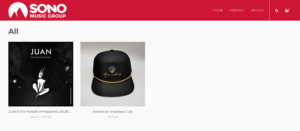Removing barriers increases accessibility. Making Space, a Spotify for Podcasters initiative aiming to elevate underrepresented creators by making studio-quality podcasting gear available to communities for free, is our way of doing just that. By partnering with local businesses—Greenville, South Carolina–based Savereign, a plant store, and Curia on the Drag café in Gainesville, Florida, are two recent examples—Spotify provides a safe place for storytellers to share and helps build a more diverse ecosystem of podcast creators.
Our third Making Space studio, which received support from Spotify’s Creator Equity Fund, is in Nourish Botanica, an Atlanta, Georgia, plant shop and community space that offers weekly markets, queer karaoke nights, plant festivals, free plant swaps, and more.
“I really appreciate Spotify partnering with us to model high-level creative entrepreneurship. I love the idea that we can be a Black-owned business in a historically Black neighborhood and provide a level of cool, quirk, and professionalism that you can’t find anywhere else,” shared Quianah Upton, the owner of Nourish Botanica. “It’s also a really good reminder to large companies worldwide how much artists and creative spaces need funding and collaboration support.”
Motivated by her own experiences of childhood food insecurity, Quianah conceived the idea for Nourish Botanica in 2013. Her hope was to create food-based events that featured talks surrounding art, storytelling, gentrification, food sovereignty, and justice issues. Now Nourish Botanica will be joined by a podcast studio. “Making Space will allow us to begin to build a safe space where dialogue, education, and conversation can take place,” Quianah explained. “Storytelling affects social justice, conveys history, builds empathy, and educates audiences by instilling a sense of belonging and community among those listening. Through our storytelling programming, Nourish Botanica works towards building an inclusive and equitable world.”
Jennifer Lind is one creator who hopes to educate audiences by sharing her family’s history through her podcast, Telling HERstory. The Atlanta native had no podcast experience but was able to bring her idea from concept to fruition in just one month by using Spotify for Podcasters. Jennifer’s show explores the life and legacy of her maternal grandmother, longtime Augusta, Georgia, educator Rosa T. Beard, through interviews with those who were closest to her.
After launching the podcast in 2020, Jennifer is now part of a thriving Atlanta podcast scene. She explained to For the Record that she’s excited that Spotify’s Making Space studio will provide another low-barrier way for those looking to get involved.
Did you have any idea how to make a podcast?
I really knew nothing about podcasting! But most people who know me know that once I decide that I want to do something, it’s not a matter of if I’m going to do it, but how. When I decided to create the Telling HERstory podcast, I started researching everything I could, and that’s how I discovered the Anchor app, which is now Spotify for Podcasters. I saw that it was not only an all-in-one tool, but also free to use. And within four weeks of deciding that I was going to start a podcast, I actually launched it. To me, that is a testament to what a great tool Spotify for Podcasters is—it makes it possible for just about anyone to become a creator.
Why do you think a podcast was the perfect medium for sharing your grandmother’s story?
I wanted to not only tell her story, but also the stories of those whose lives she touched, and document them for future generations. Especially as someone who comes from the community of color—and when you think back to our roots, of African American and African history, it involves a lot of oral storytelling. There’s something about podcasting that, in a way, goes back to those roots of documenting stories. And to have people say it in their own voice, it’s really impactful.
For example, I was able to interview Ambassador Larry L. Palmer in episode five. He was one of my grandmother’s former students who went on to become a Senior Foreign Service member and U.S. ambassador, serving under six different U.S. presidents. This is someone who had grown up in the segregated South, so there were a lot of barriers—and yet he was still able to go and do these great things. I interviewed him in January of 2021, and sadly he passed away in April 2021. And so to have his voice documented telling his story . . . that kind of solidified why this is so important.
How did your grandmother influence your life?
One of the things that impressed me the most about her was her pursuit of education. She received her undergrad degree from Paine College in 1942, which was unusual for women then, especially Black women in the South. And then she followed that up by getting a master’s degree from Columbia University in 1951. So here she was, at a top school for her master’s at a time when most people weren’t even able to go to school. She started a legacy that not only changed the trajectory of her life, but the lives of generations to come. Education has also played a big part in my life. I have a doctor of pharmacy degree and two master’s degrees, as well.
What are you looking forward to most with the new Making Space studio?
I’m excited that other people who want to tell a story now have a free podcasting studio in the community that’s accessible with the tools and the resources they need. I hope that it will give a lot of people the boost in confidence they need to actually start that podcast they’ve been dreaming about.
What’s your advice to others who want to create a podcast but aren’t sure how to get started?
Don’t overthink it. I think we get in our heads and paralyzed by the thought of where to begin. If you have the tools, which we now have, whether you’re using the Spotify for Podcasters app at home or if you’re going into the new Making Space studio in Atlanta, that barrier is removed.
Also, don’t question your story or your voice. People, me included, are nervous about putting themselves out there. When you start your podcast, know your “why” and know what your motivation is.
I started The Avana Company LLC, a brand rooted in diversity and creative expression, to focus on amplifying voices and telling our stories because I believe podcasting can open doors. So many doors have been opened to me through this podcasting journey, and I would love to reach back and pull as many people as I can through those doors. A lot of people have asked how I started the podcast, so I decided to make a free launch checklist to help others get started. I want to help as many people as possible realize that it’s not impossible. It’s really about having the confidence to get started. If you have the tools and resources available, it can be a little less intimidating.
Everybody brings a unique perspective from their lived experience to a conversation. And so, the more people we can have out there sharing their stories, the better.
Hear more from Jennifer, and learn about the incredible legacy of Mrs. Rosa T. Beard, in her podcast, Telling HERstory, below.
The post Creating a New Podcast Space for Underrepresented Voices in Atlanta appeared first on Spotify.
Behind the Mic, Atlanta, Diversity Inclusion and Belonging, Interview, jennifer lind, Making Space, nourish botanica, podcast, podcast studio, q&a, Quianah Upton, underrepresented






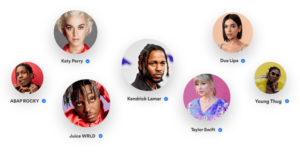
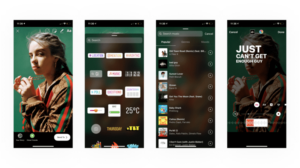
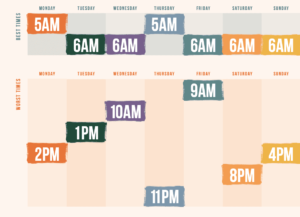
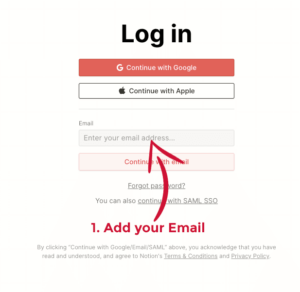
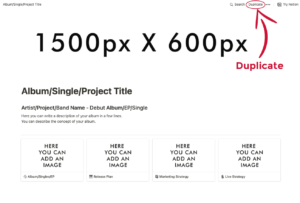
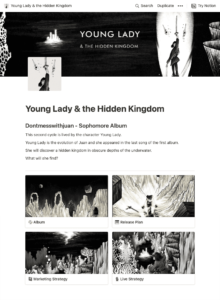
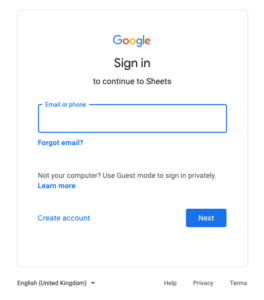

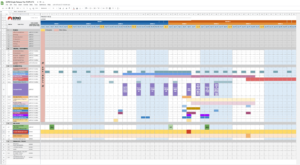
 Official Website:
Official Website: 
 Official Website:
Official Website:  Official Website:
Official Website:  Official Website:
Official Website:  Official Website:
Official Website: 



 Official Website:
Official Website: 














































































































 Official Website:
Official Website: 






















































































 Official Website:
Official Website: 


















